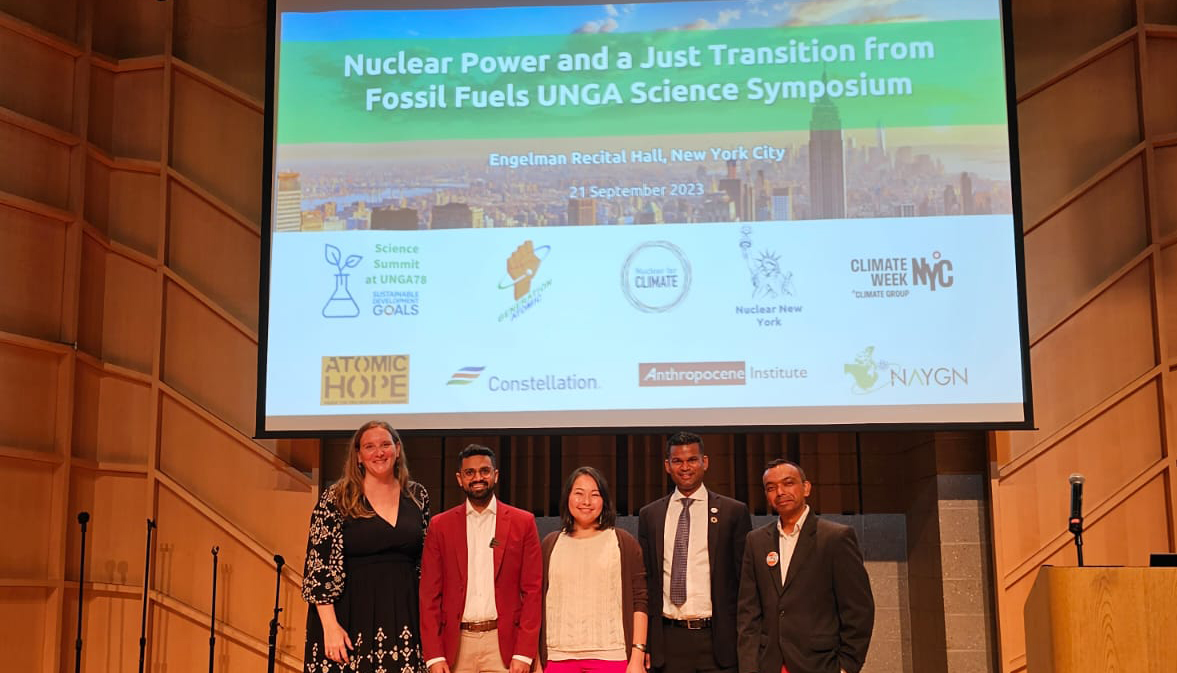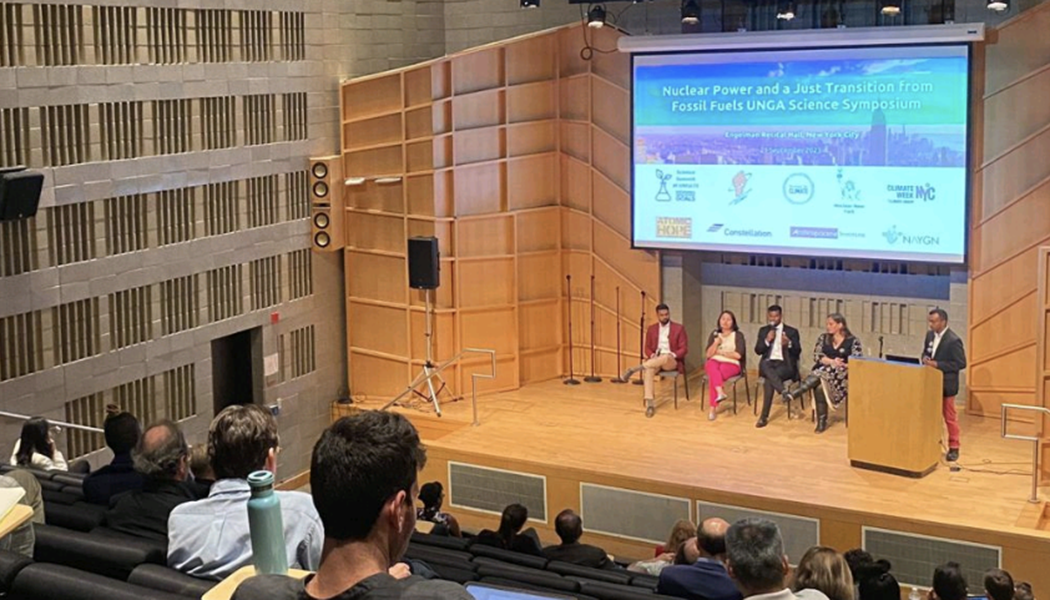Close
New York City — September 21, 2023 — At the UNGA Science Symposium, themed “Nuclear Power and a Just Transition from Fossil Fuels,” Dinara Ermakova, Innovation Chair of the International Youth Nuclear Congress and a Nuclear Communication Consultant for Anthropocene Institute, spoke on repowering coal plants with nuclear reactors in developing regions and rural communities around the world from the talent retention perspective.
She set the stage with numbers: “We’re going to close 173 coal-fired units by 2030. That’s great news. The problem is that we don’t see the real people behind that. It feels good to close coal power plants, but what about those working there? What about millions of workers that are directly employed by fossil fuel industries now.”
With tens of thousands of people in the U.S. getting fired as coal and gas plants close and leaving their communities, there is a cascading effect. With less tax revenue, schools and medical systems collapse. Young people leave, and older people go on unemployment. Dinara presented another pathway: adopt nuclear power to decarbonize the energy portfolio and keep local communities thriving.
Each nuclear plant employs at least 600 full-time people. Adding in decommissioning, site preparation, and other activities, the number of jobs climbs into the thousands. Finding the workforce is challenging because, historically, there has been a drop in interest in nuclear energy. “This is not only in the United States. This is a global problem,” she said.
However, the existing coal and gas power plant operators already have many skills needed to maintain and operate a nuclear plant. We must fill the knowledge transfer gap and provide training and certification programs. Security will need to be taken into account and properly executed, too.
Despite these challenges, the positive impact will be massive. Case studies done by Idaho National Lab and others prove that by replacing a large coal plant with a nuclear one, the plant not only produces more energy per capacity unit. It also works 24/7 and has the potential to bring roughly $275 million in economic activity to the local community from direct and indirect employment. “Increases in tax revenue means communities can build better schools, medical systems, and roads, and get cleaner air and better job development,” Dinara said.
She emphasized that people will not necessarily need to have engineering backgrounds. Various roles are required — marketing, finance, operation, and others. “Many people in these communities don’t have any other job opportunities. Nuclear power and nuclear power plants can play a big role first in the United States. Then we can spread this experience and, I believe, have success around the globe.”

